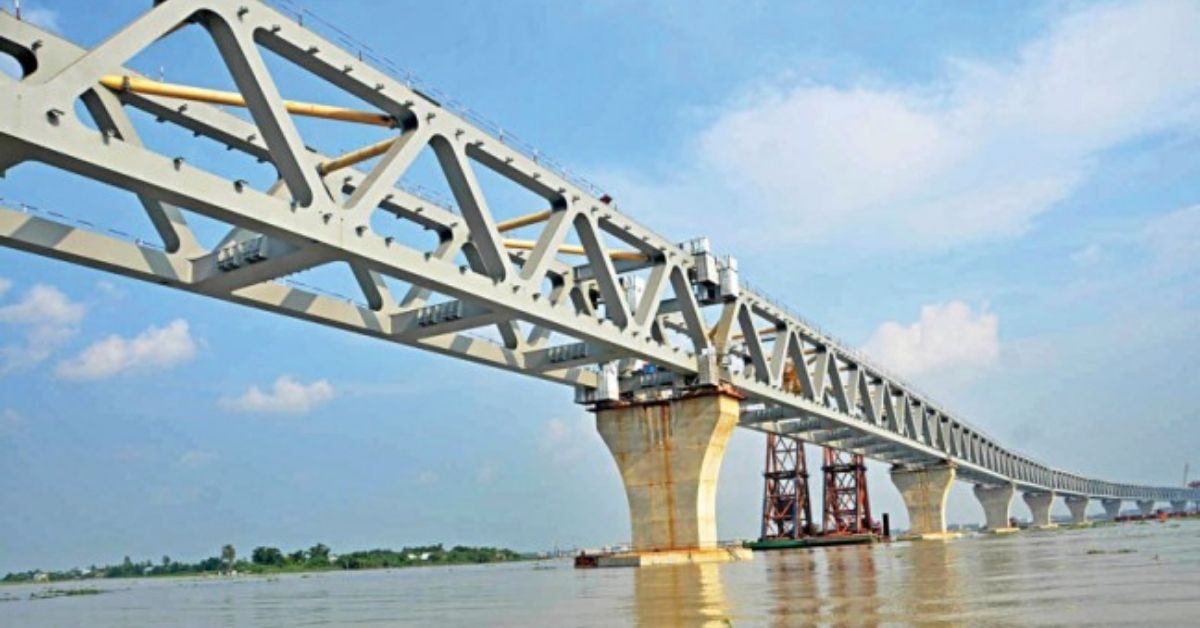Bangladesh has been at the centre of initiatives such as the BBIN Motor Vehicle Agreement, the BCIM Corridor and the BIMSTEC alliance, which envisage greater market access and create an enabling environment for rapid economic development.
The economic corridors and blocs — Bangladesh Bhutan India and Nepal (BBIN), Bangladesh China India and Myanmar (BCIM) and Bay of Bengal Initiative for Multi-Sectoral Technical and Economic Cooperation (BIMSTEC) — were initiated to ease business processes among the participating nations.
In order to promote trade, Bangladesh needs to join the UN Customs Convention on the International Transport of Goods under Cover of TIR Carnets (TIR Convention, 1975)
The observations came in a news bulletin from the International Chamber of Commerce-Bangladesh (ICC-B) this week.
In recent years, a number of countries, including China, India and Pakistan, have joined the TIR Convention.
With the completion of the Padma bridge, the TIR system will help further enhance regional integration in South Asia and facilitate Bangladesh’s access to global markets.
The ICC-B also said Bangladesh is set to achieve its vision of reaching the middle-income country status by its 50th birthday on December 16 this year.
Appropriate infrastructure is the element to sustain the development momentum, it said.
Therefore, as desired by the prime minister, all the agencies concerned must work in concert to complete the ongoing as well as future mega infrastructure projects as per schedule.
In such a situation, Bangladesh’s journey as a developing economy will be more robust, belying apprehension of some quarters, according to the chamber.
With the completion of the Padma bridge, Bangladesh will be connected with many of the South and Southeast Asian countries.
It will contribute immensely to communication, trade, industry, tourism and many other sectors in various ways.
In particular, it will immediately help in having better and faster connectivity with Bhutan, India and Nepal for trade and tourism.
The main structure of the 6.15-kilometre long Padma bridge was completed on December 10, 2020.
The double-decker bridge with road and rail tracks was estimated to cost around $1.21 billion in 2007 but the cost has increased to $3.86 billion, almost three times than the original estimate.
The cost escalation could have been minimised with close monitoring and timely implementation, the ICC-B said.
The Padma bridge’s rail link, expected to be completed by June 2024, will improve accessibility of Dhaka to central and south western regions of the country.
The estimated cost of the rail link project is $4.63 billion, of which 85 per cent will be provided by China through Exim Bank of China.
According to experts, once the bridge is fully operational in June 2022 (if not further delayed), it will contribute around 1.2 per cent to the annual GDP growth, reduce poverty and increase economic activities of the people of southwest region, the chamber said.
It will open up investment in the south and south-western regions and will connect Bangladesh’s premier Chattogram seaport directly with the main land port Benapole.
The southwest region covers approximately 27 per cent of the country and is home to nearly a quarter of its over 165 million population.
But this region has remained one of the least developed parts, primarily due to a lack of connectivity with the rest of the country, according to an Asian Development Bank (ADB) study.
“The proportion of the population below the poverty line in the southwest region remains about 5 per cent higher than that in the rest of the country.”
According to a Japan International Cooperation Agency (JICA) study, a 10 per cent decrease in travel time to and from Dhaka will lead to a 5.5 per cent increase in district economic output.
The benefits of the project would be equivalent to an annual increase of at least 1.7 per cent of southwest region’s GDP in value and of 0.56 per cent of annual increase of national GDP, according to a World Bank project appraisal document.
Besides Padma bridge, the country is currently implementing a number of mega infrastructure projects like Dhaka metro rail, Bangabandhu Sheikh Mujibur Rahman Tunnel under the Karnaphuli river, and the third terminal of Hazrat Shahjalal International Airport.
Source : The Daily Star







